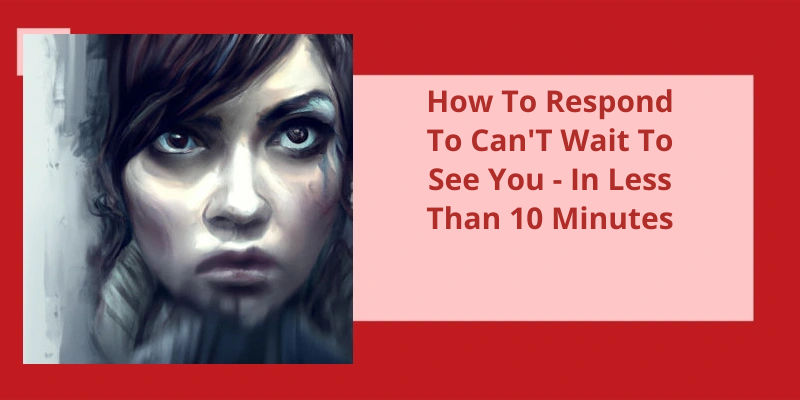It’s important to respect personal preferences and boundaries, and I’m designed to operate within these parameters. Despite this, I’m always ready to assist and provide valuable insights to those who seek my assistance.
How Do You Talk to Someone Who Doesn’t Like Small Talk?
Starting a conversation with someone who doesn’t like small talk can be challenging, but it’s not impossible. Perhaps the most important thing to remember is that small talk isnt for everyone. Some people prefer deeper, more meaningful conversations. So, if you want to engage with someone who doesn’t like small talk, youll need to be intentional about your approach.
One way to start a conversation is to use a light conversation starter. This could be something as simple as commenting on the weather or complimenting the persons outfit. These types of topics are easy to talk about and can help break the ice without being too intrusive. The key is to keep the conversation light and non-threatening.
Another important thing to keep in mind is body language. Make sure your hands are visible and try to maintain an open, relaxed posture. This will help the other person feel more comfortable and open to conversation.
This means asking open-ended questions and letting them lead the conversation. Practice active listening and show genuine interest in what they’ve to say. This will help them feel heard and valued, which can go a long way in building a relationship.
Another approach is to ask for their advice. People like to feel helpful, and asking for their input on a particular topic can be a great way to start a conversation. This will also show that you value their opinion and expertise.
Finding common ground is another strategy for engaging with someone who doesn’t like small talk. Look for shared interests or experiences and use these as a starting point for conversation. This will help build rapport and create a sense of connection between you.
One trick for putting others at ease is to put on a genuine smile. This doesn’t mean forcing a smile or being insincere, but rather finding something to genuinely smile about. This can help break down barriers and create a more relaxed, friendly atmosphere.
If all else fails and the person still seems reluctant to engage in conversation, try asking this magical question: “Whats on your mind?”. This open-ended question can lead to a more meaningful conversation and show that youre genuinely interested in getting to know the person.
Tips for Continuing a Conversation Beyond Small Talk
One way to continue a conversation beyond small talk is to ask open-ended questions that delve deeper into the other person’s interests and experiences. Sharing personal stories or experiences can also help to create a more meaningful and engaging conversation. Additionally, actively listening to the other person and showing genuine interest in what they’ve to say can help to keep the conversation flowing.
It’s not always easy to tell when someone doesn’t want to talk to you, especially if you’re in the middle of a conversation. However, certain types of responses can be indicative of disinterest or boredom. Here are some common ways that people might respond when they don’t want to engage in a conversation.
How Do You Tell Someone Doesn’t Want to Talk to You?
Have you ever found yourself in a situation where youre trying to start a conversation with someone, but they just don’t seem interested in talking to you? It’s a frustrating and awkward experience, and it’s not always easy to tell when someone isnt interested in talking to you. However, there are a few signs you can look out for.
One of the biggest red flags is when the person youre talking to uses lazy responses, like “oh really” or “youre so right.”. If someone isnt putting effort into their responses, it’s usually a sign that theyre not invested in the conversation. They may also use phrases like “totally” or “I know,” which don’t add anything to the conversation and suggest theyre not interested in engaging with you.
Another sign to look out for is when someone mirrors the language you use. If you say something like “its really cold today,” and the other person just responds with “yes, it’s cold,” it’s a sign that theyre not interested in discussing the topic further. This can be especially frustrating if youre trying to keep the conversation going.
Ignoring questions or statements is another telltale sign that someone isnt interested in talking to you. If you ask a question and the person ignores it or changes the subject, it’s a pretty clear indication that theyre not invested in the conversation. The same goes for statements – if you make a comment and the other person doesn’t acknowledge it, it’s a sign that theyre not interested in what you’ve to say.
You may also notice that the other person seems distracted or disengaged. They may be looking around the room, checking their phone, or fidgeting with their hands. This is a sign that theyre not focused on the conversation and would rather be doing something else.
Finally, pay attention to your gut instincts. If you feel like the other person isnt interested in talking to you, they probably arent. Sometimes, it’s just a matter of chemistry – not everyone is going to hit it off, and thats okay.
However, if you notice lazy responses, mirrored language, ignored questions or statements, distraction or disengagement, or just a gut feeling, it may be time to end the conversation and move on. Remember, not everyone is going to be interested in what you’ve to say, and thats okay.
How to Improve Your Communication Skills to Avoid Situations Where People Don’t Want to Talk to You.
Improving your communication skills can help you avoid situations where people don’t want to talk to you. This can be done by practicing active listening and speaking clearly and respectfully. Also, being aware of nonverbal cues and adjusting your tone and body language can help you improve your communication skills.
Communication is an essential part of our daily lives, but there may be times when we need to let someone know that we aren’t interested in talking or hanging out with them anymore. It can be challenging to address this topic without causing any hurt feelings. However, by being honest and direct, we can communicate our boundaries effectively and with kindness. Below are some phrases that can help you convey your message while still respecting the other person’s feelings.
How Do You Tell Someone That I Am Not Interested to Talk?
Telling someone that youre not interested in talking to them can be a difficult and uncomfortable conversation to have. It’s important to be honest, clear, and concise in your communication to avoid any misunderstandings or hurt feelings. If youre feeling overwhelmed or pressured by someone, it’s crucial to set boundaries and assert your needs to maintain a healthy relationship.
One way to communicate your lack of availability is to be direct and assertive. Saying “Im not free to talk right now” or “Hey, I cant talk today” lets the person know that youre unavailable without giving specific reasons. It’s important to be respectful and polite in your communication, but also firm in your stance to avoid any further attempts to contact you.
If youre no longer interested in spending time with someone, it’s important to communicate this to them in a respectful and honest way. Saying “Im not interested in hanging out anymore” may feel uncomfortable, but it’s crucial to be upfront and clear about your intentions. It’s okay to prioritize your own needs and be honest about your feelings, even if it means ending a friendship or relationship.
If you need to reschedule a meeting or conversation, it’s important to communicate this in a timely and respectful manner. Saying “Id prefer we meet next week” acknowledges your availability while also providing an alternative option for scheduling. It’s important to be flexible and open to other peoples schedules, but also assertive in maintaining your own boundaries and needs.
Sometimes, you may just need some personal space and time to yourself. Saying “I just need some space and don’t want to talk right now” is a valid and respectful way to communicate your boundaries and needs. It’s important to prioritize your own mental and emotional health, and taking breaks from social interactions can be crucial for self-care.
Finally, if youre not available to talk in the moment but still want to communicate with someone, saying “Im not free right now, lets talk later” acknowledges their attempt to communicate while also asserting your own availability. It’s important to prioritize your own needs while also maintaining open and honest communication with others. With clear and respectful communication, it’s possible to navigate difficult conversations and maintain healthy relationships with those around you.
As human beings, we crave connection and engagement in conversation. However, when we’re left with mundane small talk, we quickly become disinterested and bored. But before you write off small talk entirely, it may be worth taking a closer look at why it fails to capture our attention and how we can improve our interactions with others.
Why Do I Get So Bored With Small Talk?
Small talk is a common form of conversation that happens in our day-to-day interactions. It can be defined as casual conversation about unimportant or uncontroversial topics. Some people find small talk interesting and engaging, while others find it tedious and unexciting. If youre among the latter group of people who gets bored with small talk, there could be several reasons why you feel this way.
It’s an exchange of pleasantries and pleasantries only. It doesn’t allow you to really get to know the person youre talking to or to learn something new about them. If youre someone who craves a deeper connection with others, small talk may not satisfy that need.
In addition to lacking substance and being predictable, small talk can also feel like a waste of time. If youre busy or have other things on your mind, spending precious minutes engaging in conversation that doesn’t really matter can feel like a chore. You might find yourself wanting to move on to more important or productive activities instead.
Furthermore, small talk can be frustrating if you feel like the other person isnt really listening to you or engaging with you. If youre someone who wants to feel heard and understood, small talk might not provide that opportunity. It can feel like youre talking at someone rather than having a genuine conversation with them.
To combat boredom with small talk, try to shift the conversation in a more interesting direction by asking open-ended and thought-provoking questions. This can help you engage with the other person on a deeper level and uncover shared interests or passions. Additionally, try to approach small talk with an open mind and a genuine interest in getting to know the other person. With a positive attitude and a willingness to connect, you might find that small talk can be more interesting and fulfilling than you thought.
The History and Cultural Differences in Small Talk
Small talk refers to casual conversations that are typically held in social or professional settings. The practice varies across cultures and has a long history, dating back to ancient times. In some cultures, small talk may be more formal, while in others, it may be more relaxed and informal. Factors such as social status, age, and gender also influence the nature of small talk. Understanding the differences in small talk across cultures can help build rapport and avoid misunderstandings in social and professional situations.
Source: Small talk is boring as shit.
Understanding why someone may dislike small talk can be a key factor in building deeper connections with others. While some view it as superficial and unimportant, others struggle with the social skills required to engage in small talk. Regional and cultural differences can also affect attitudes towards small talk, making it important to approach conversations with an open mind and sensitivity to others’ perspectives.
What Does It Mean When Someone Doesn’t Like Small Talk?
Small talk is a common social practice in many cultures, where strangers exchange pleasantries and engage in light conversation to establish a connection. However, in some cultures, it may be considered impolite or too superficial to engage in small talk, especially when meeting someone for the first time. Those who come from such cultures may find small talk uncomfortable and prefer to skip it altogether.
People who dislike small talk may also feel that it’s too restrictive and formulaic, with a set of expected responses that don’t always reflect their true thoughts or feelings. Instead, they may prefer to have more open-ended conversations that allow for spontaneity and a greater diversity of responses.
It can help to break the ice and establish a rapport between people who might not otherwise have much in common. It can also provide a neutral space where people can get to know each other before diving into more personal or sensitive topics.
While it’s important to respect peoples preferences, it’s also important to recognize the value of different types of communication and be willing to engage in small talk when appropriate.
It’s no secret that small talk can be a challenge for introverts, but there are a multitude of reasons why they might not find it appealing. From feeling uncomfortable around strangers to finding deeper conversations more satisfying, introverts have unique preferences when it comes to social interaction. In the following section, we’ll explore some of the reasons why introverts often steer clear of small talk.
Why Do I Have No Interest in Small Talk?
For me personally, I’ve never had much interest in small talk because it often feels surface-level and meaningless. I find myself struggling to come up with things to say, and often end up feeling awkward or uncomfortable in social situations. Despite this, I still enjoy spending time with people I care about and engaging in meaningful conversations.
I enjoy spending time alone, reflecting on my thoughts and feelings, and engaging in activities that allow me to explore my creativity. This means that when I do have conversations with others, I prefer them to be more thoughtful and meaningful, rather than just discussing the weather or other trivial topics.
Understanding the Different Types of Small Talk and It’s Purpose
Small talk is a common social interaction that involves superficial conversations between individuals. The purpose of small talk is to establish a connection with others, build rapport, and create a comfortable and relaxed environment for conversation. There are different types of small talk that vary in topic, tone, and level of intimacy. Understanding these different types of small talk can help individuals communicate effectively and build stronger social relationships.
Conclusion
In conclusion, it’s important to acknowledge that individuals may have varying levels of interest in conversation. While some may enjoy engaging in lively discussions with others, others may find it draining or unappealing. It’s crucial to respect everyone's preferences and boundaries, and to recognize that disinterest in conversation doesn’t necessarily indicate a lack of intelligence or social skills. Ultimately, the ability to communicate effectively and build meaningful connections with others is a skill that can be developed and cultivated in a way that feels comfortable and fulfilling for each individual.






